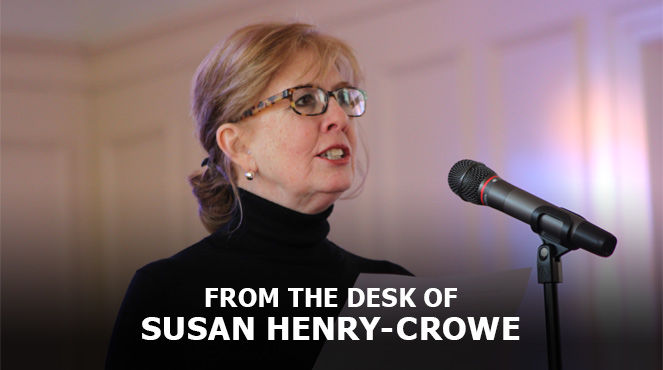The urgent need to re-focus on climate justice
The summer of 2021 points to even more peril ahead

The harvest is over – the summer is ended and we are not saved - Jeremiah 8:19
How we waited for summer! The winter of 2021 was plagued with sickness and despair. There seemed no way out. But spring came with buds, flowers, hope — no in-person church but still with glimmers of hope. There was the hope of a “vacation,” family, friends, barbecues and small gatherings. To some extent it happened. Filled with caution and armed with masks, there were road trips and family reunions.
But the realities of this summer were soon to be revealed. The pandemic lingered — Delta and new strands of the virus that causes COVID-19 emerged. The future is at best unsettling and at worst frightening. The war on terror (in Afghanistan) ended with much disruption and without solicitude. The end was not pretty. But the end of conflict never is.
Fires in California, an earthquake in Haiti, hurricanes, flooding, power outages, the hottest July on record — one of the great issues of the summer of 2021 was one of climate chaos.
On a daily basis, climate change impacted the globe. In the U.S., fires ravaged parts of California and Oregon; hurricanes and rainstorms raged along the Gulf and Eastern seaboard from Louisiana to New Jersey and New York. Tennessee has untold suffering from several disasters. Disastrous effects of global warming exist around the world, including the Philippines and many countries in Africa.
It is time that we as people of faith committed our churches and the systems with which we work to actively focus our vision, energy, resources and commitments on climate justice.
John Wesley, the founder of Methodism, made the connection between faith in God and the need to protect the earth, wrote Ted Runyon in his book, “The Theology of Creation.”
“Wesley understood God’s goal as the transformation of this present age, restoring health and holiness to God’s creation,” he wrote. “God therefore enters into the life of the world to renew the creature after the divine image and the creation after the divine will.”
The United Methodist Church has long been attentive to the realities of climate change when it adopted the 2016 Social Principles, stating in Paragraph 160.D:
We acknowledge the global impact of humanity’s disregard for God’s creation. Rampant industrialization and the corresponding increase in the use of fossil fuel fuels have led to a buildup of pollutants in the earth’s atmosphere … We therefore support efforts of all governments. These “greenhouse gas” emissions threaten to alter dramatically the earth’s climate for generations to come with severe environmental, economic and social implications. The adverse impacts of global climate change disproportionately affect individual and nations least responsible for the emissions. We therefore support efforts of all governments to require mandatory reductions in greenhouse gas emissions and call ono individual, congregations, businesses, industries, and communities to reduce their emissions.
The Council of Bishops’ document, “God’s Renewed Creation,” in 2009 laid out the challenges of pandemic poverty and disease, environmental degradation, and the proliferation of weapons and violence. We must continue to address these life-threatening systemic sins and afflictions.
We thankfully admit that as a Church we are committed and engaged in offering humanitarian care and relief when natural and human-made disasters occur. We are not as good at addressing the big picture of justice issues, such as global warming, poverty and health care, with long-term policies of care and prevention. We have known for years ways to mitigate and turn around global warming that leads to climate change. But we put it off in favor of convenience, desire, false hope and greed through willful neglect, scorn and disregard of scientific evidence.
Communities that are most impacted, both in the U.S. and around the world, are communities of color, people living in poverty and those with the least power to change the trajectory. Those most affected by global warming also have fewer resources to make a change. While international companies dispossess the land and harm the environment to seek profit, the peoples of the Democratic Republic of Congo, the Philippines and areas most vulnerable in the U.S. have few resources to reverse these actions.
In the Bible, Jeremiah gives voice to our global reality “…the summer is ended and we are not saved.” Yashah is the Hebrew word for saved (Strong’s Exhaustive Commentary of the Bible). The definition of Yashah is “to be open, wide, free, safe, succor.” Yashah is not where the world is we at this moment in time. We are not comforted, relieved, attended, protected or sustained. We live with existential anxiety, fear and discomfort.
The summer of 2021 is ended and we are not saved.
Jeremiah goes on to say, “for the wound of the daughter of my people is my heart wounded, I mourn, and dismay has taken hold on me.” We mourn the ruination of creation. And we must move from mourning into restoration and care of creation.
We are not yet perfect in honoring and protecting God’s creation. We are not perfect in caring for God’s people. We are not open, free or safe within the created world where climate change is wreaking havoc all around the world.
But it is not too late.